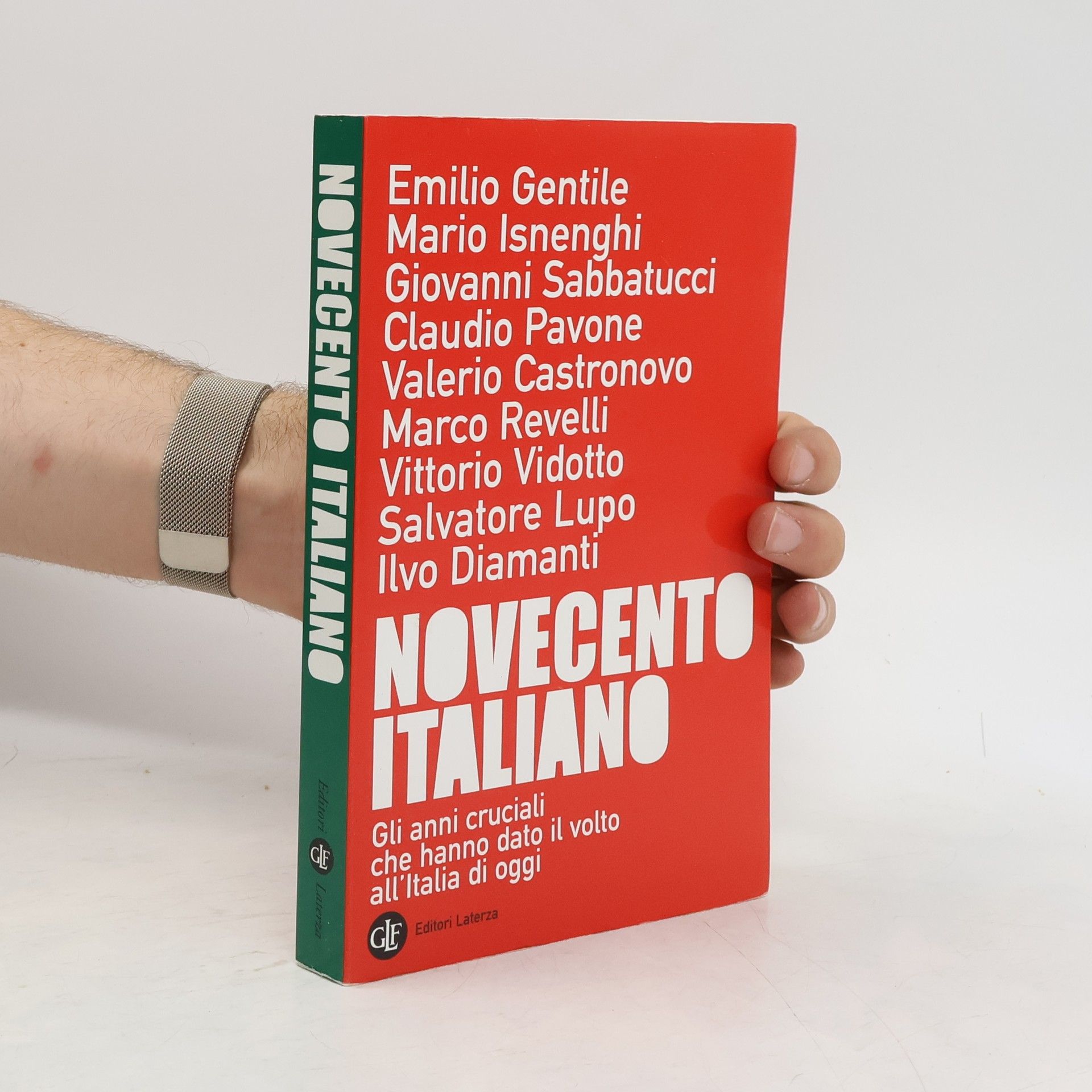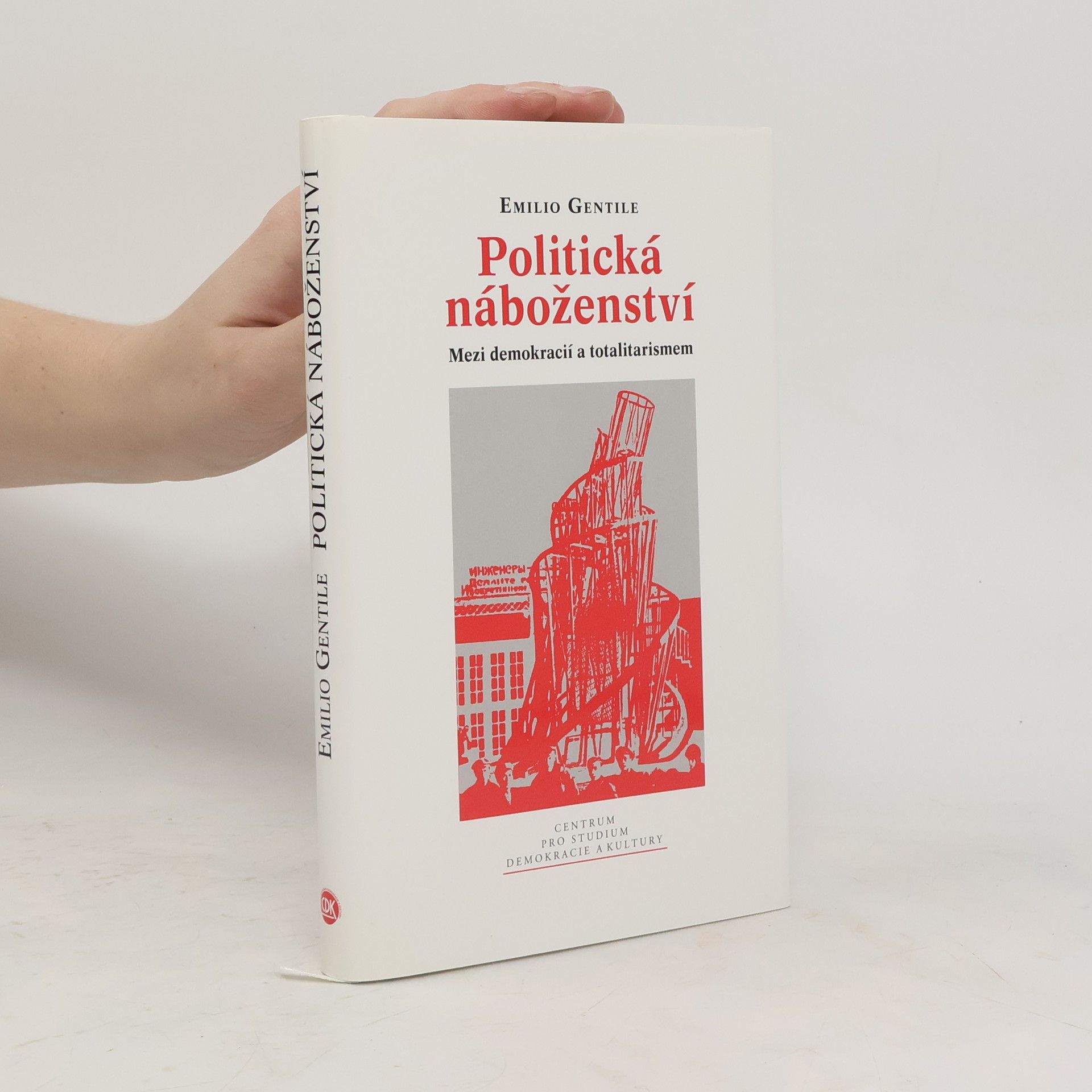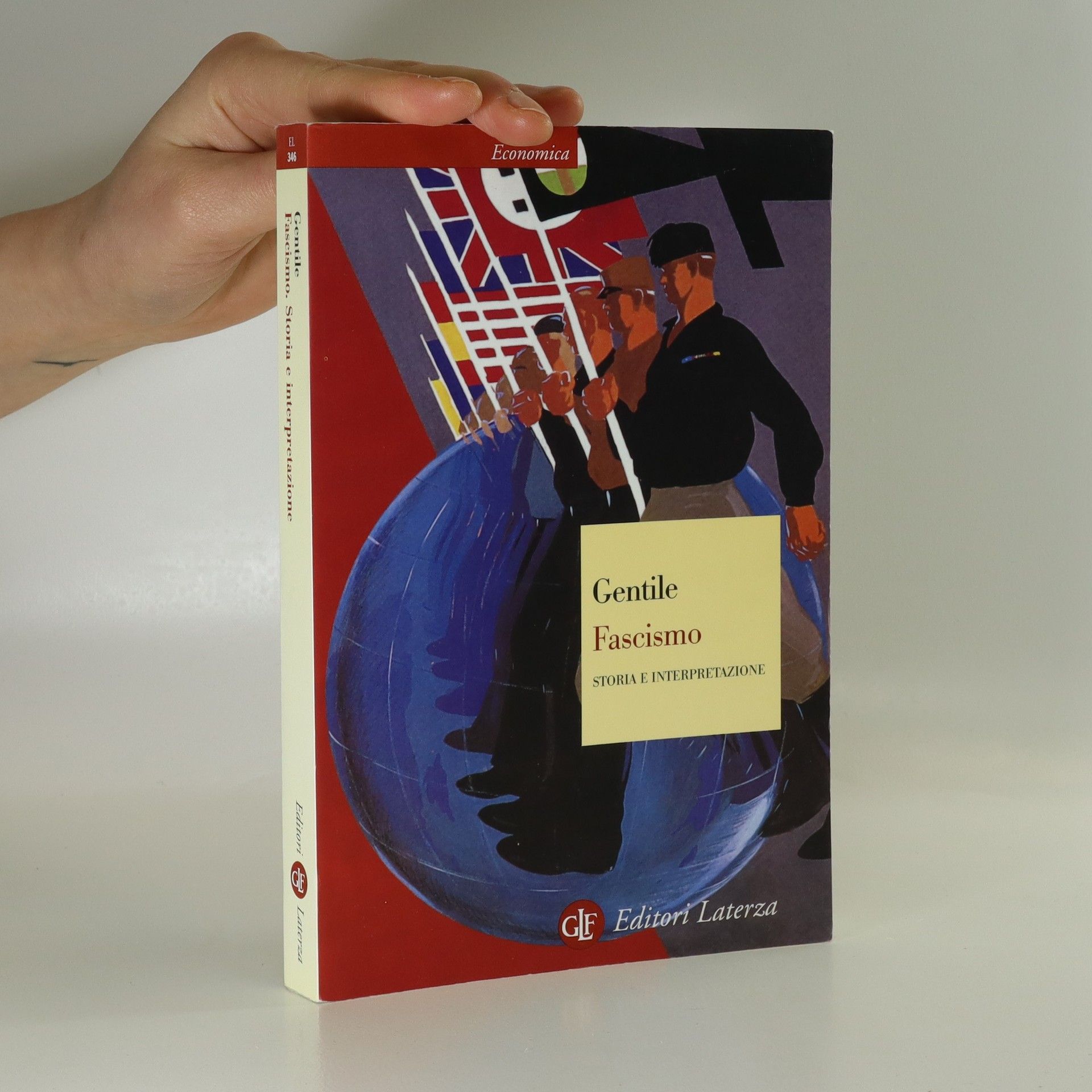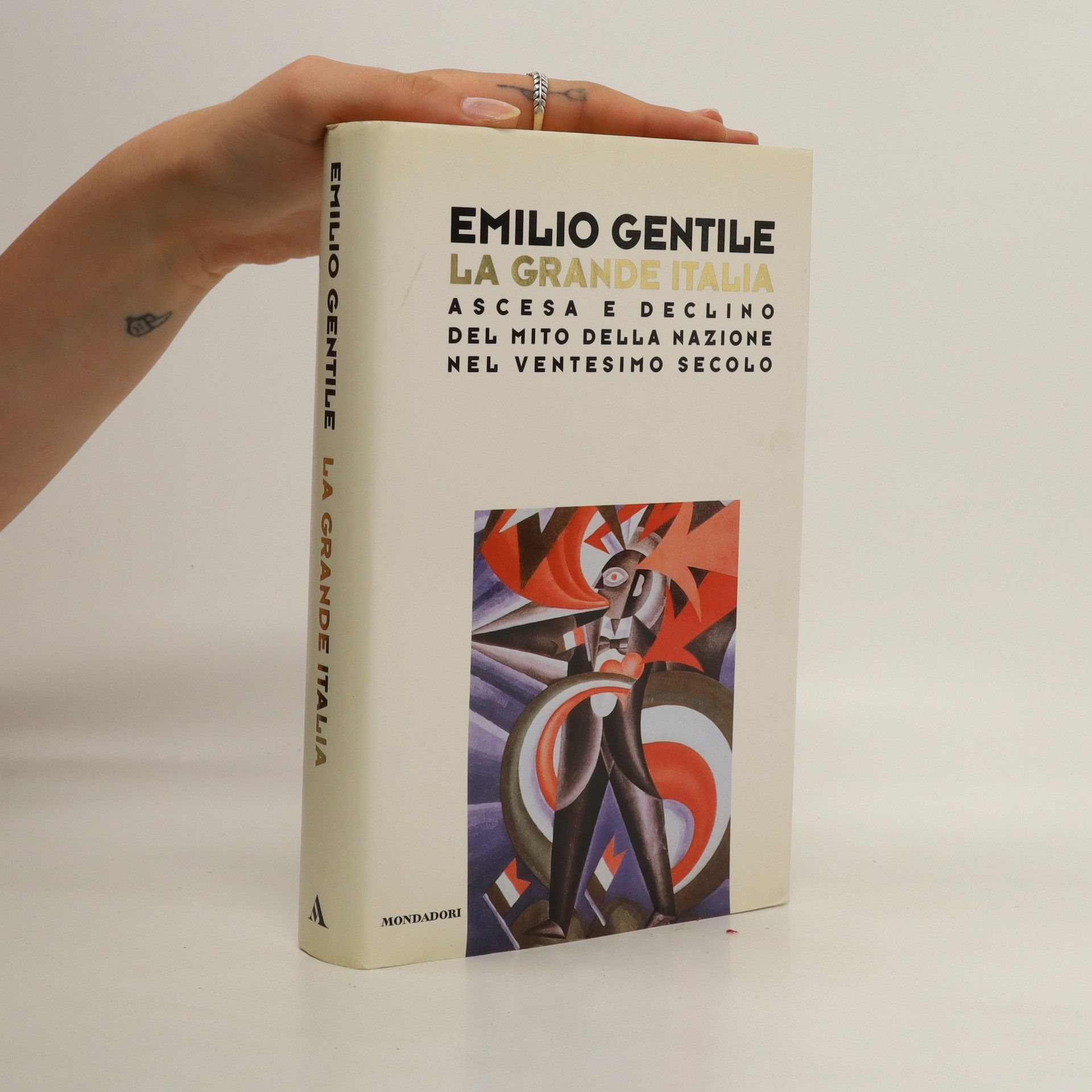Una storia del nazionalismo italiano, dall'unità al secondo dopoguerra, che è anche la storia di un'idea: l'idea "nazione italiana". Una delle tesi principali del libro è che, mentre nel Risorgimento, nell'Italia liberale e anche nel fascismo è esistita un'idea della nazione sostanzialmente condivisa dalla maggior parte degli italiani, oggi questo non è più vero e di conseguenza siamo un "popolo senza nazione".
Emilio Gentile Livres
Emilio Gentile est un éminent historien culturel italien spécialisé dans l'idéologie et la culture du fascisme. Son œuvre explore en profondeur l'essence de la pensée fasciste et ses manifestations culturelles. Gentile considère le fascisme comme une forme de religion politique, une théorie qu'il a également appliquée à d'autres contextes historiques et contemporains. Ses analyses offrent des perspectives éclairantes sur la nature des idéologies totalitaires et leur impact sociétal.







Nazionalista e rivoluzionario, antiliberale e antimarxista, imperialista e razzista: il fascismo è stato il primo esperimento totalitario attuato nell'Europa occidentale da un partito milizia, proteso ad annientare i diritti dell'uomo e del cittadino, per creare una "nuova civiltà", fondata sulla militarizzazione della politica, sulla sacralizzazione dello Stato e sul primato assoluto della nazione come comunità etnicamente omogenea. Questa è, in sintesi, l'interpretazione del fenomeno fascista esposta in questo saggio da Emilio Gentile.
Kniha se věnuje posvěcování politiky, jejímu přibližování se náboženství, tedy celému komplexu liturgie, symbolů, mýtů, které propůjčují národu auru jisté svatosti. Rozkrývá systém, který – jak velmi dobře ukázalo dvacáté století – může mít velmi tragické následky. Gentile proto rozlišuje mezi politickým náboženstvím, které předpokládá vynucené podřízení se státním institucím,a občanským náboženstvím, tedy jistou formou posvěceného politického systému, které však nutně neznamená slepou poslušnost vlastním příkazům. Zvláštní pozornost věnuje občanskému náboženství uplatňovanému v demokracii, jako příklad si vybral Spojené státy americké. Amerika po období plném skepse nyní reprezentuje nejpokročilejší znovuobnovené občanskénáboženství, které fascinuje a stmeluje celou společnost.
Novecento Italiano
Gli anni cruciali che hanno dato il volto all'Italia di oggi
- 252pages
- 9 heures de lecture
Il Novecento fa discutere. La sua eredità è controversa, la sua memoria divisa. Dal regicidio alla Grande Guerra, dal delitto Matteotti all'8 settembre, dal miracolo economico alla contestazione, dagli anni del terrorismo al maxiprocesso e a Tangentopoli, il corso della storia ha accelerato il passo, impresso svolte, segnato l'identità del nostro paese.Nove grandi storici interpretano un'epoca che ci riguarda tutti da vicino.
Economica: Fascismo di pietra
- 284pages
- 10 heures de lecture
Il regime fascista, ci racconta Emilio Gentile in questo nuovo e avvincente saggio, non era soltanto retorica, ma anche pittura, scultura, architettura, urbanistica. Gentile si conferma il vero erede italiano di George Mosse, attento, come lo fu lo storico tedesco, agli aspetti dell’estetica del potere.Dino Messina, “Corriere della Sera”Si aprì l’era del ‘piccone risanatore’. Per Mussolini attrezzo-simbolo di un attivismo frenetico che finiva per considerare Roma e la sua architettura passata e futura – come spiega molto bene Emilio Gentile – come arsenale di miti, deposito di destini imperiali, ma anche bersaglio di risentimenti che il duce nutriva fin dalla giovinezza nei confronti della città eterna.Filippo Ceccarelli, “la Repubblica”
Nessun altro periodo della storia è stato altrettanto fitto e denso di esperienze nuove, profonde, vaste, sconvolgenti, esaltanti e terribili.Ci fu un tempo in cui l’Europa era il centro del mondo. La sua supremazia si estendeva su tutto il pianeta, in ogni campo del sapere e dell’agire. Accadeva cento anni fa, all’apice di un’ascesa iniziata quattro secoli prima, con la scoperta del nuovo mondo e la circumnavigazione dei continenti da parte di intrepidi navigatori. All’inizio del Novecento la guerra appariva un rischio evitabile con la diplomazia, dopo oltre quarant’anni di pace e di progresso che sembravano destinati a durare e a diffondersi nel mondo. Improvvisamente, con la Grande Guerra, l’ottimismo crollò e l’Europa mondiale naufragò nella tempesta che essa stessa aveva scatenato. Con verve narrativa e affascinante erudizione, Emilio Gentile ricostruisce l’apogeo dell’Europa e il ruolo di vero e proprio laboratorio che l’Italia giocò in quegli anni: il nostro fu uno dei paesi in cui si manifestarono i primi segnali della crisi di un intero continente e i sintomi del crepuscolo di una civiltà di cui ancora oggi, a distanza di un secolo esatto, viviamo le conseguenze. Ricostruire quel che accadde in quella stagione può aiutare a comprendere quel che succede oggi nel mondo del terzo millennio, in un momento in cui l’Europa, sempre più indecisa, rischia di scivolare verso una definitiva e pericolosa marginalità.